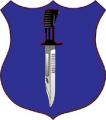OPTAG has come on in leaps and bounds and is approaching the excellence that was NITAT.We have also developed much better structures for the rapid dissemination of lessons learnt from Theatre to the wider army, not yet perfect by any stretch but a far greater improvement on even 12 months ago.
JMA raised a point about preferring light role units for Afghanistan. Having served light role, mech and armoured (and with my last unit being armoured infantry (AI)) I noted with interest that most UK units in Afghanistan have a vehicle fleet equal to or larger then the establishment of mech or AI battalions. Being primarily light role units which have deployed so far they have not necessarily had the supporting structures or know how to maintain them effectively...Logistics is not a dirty word (however unglamorous it may be!)
The current brigade deployed in theatre is a mechanized brigade and it will be interesting to see what their experience is.











Bookmarks